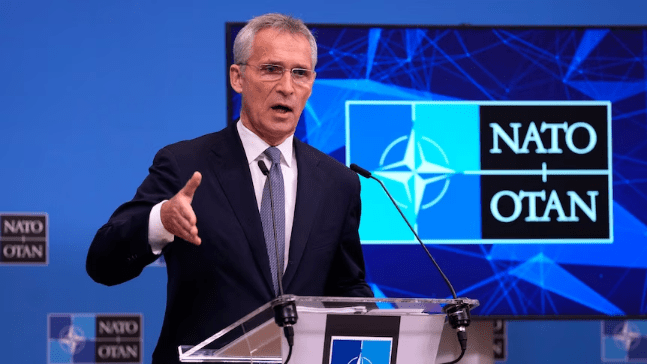
NATO Chief Warns Europe to Prepare for Decade-Long Conflict in Ukraine Due to Ongoing Russian Invasion
Fiona Nanna, ForeMedia News
5 minutes read. Updated 8:20PM GMT Thurs, 18July, 2024
Europe must be prepared for a prolonged conflict in Ukraine lasting over a decade, according to NATO Secretary General Jens Stoltenberg. In an exclusive interview with BBC, Stoltenberg highlighted the paradox that extended NATO involvement could hasten a resolution to the ongoing war.
Since Russian President Vladimir Putin’s full-scale invasion of Ukraine in February 2022, the conflict has escalated tensions across the region. Stoltenberg, who concludes his decade-long tenure in October, urged European NATO members to bolster their commitments, especially amidst concerns over potential cuts to US funding under a second term of President Donald Trump.
“European NATO allies must brace themselves for a conflict in Ukraine lasting more than 10 years,” Stoltenberg affirmed. “The key message is that sustained support for Ukraine will expedite the path to peace.”
Stoltenberg emphasized that a clear and enduring commitment to Ukraine’s sovereignty is crucial in influencing President Putin’s calculus. “Currently, President Putin believes he can outlast us. Our steadfast commitment sends a strong message that Ukraine’s independence is non-negotiable,” he stated.
NATO’s recent announcement of a new command unit in Germany, operational from September, aims to enhance coordination and support for Ukraine. Stoltenberg underscored this initiative as pivotal in demonstrating NATO’s unwavering solidarity.
The geopolitical landscape is further complicated by Germany’s plan to nearly halve military aid to Ukraine next year, citing financial constraints and geopolitical shifts. However, Finance Minister Christian Lindner assured that Ukraine’s funding remains secure, bolstered by a G7 initiative aimed at leveraging frozen Russian assets.
Concerns over potential reductions in US aid intensified following former President Trump’s selection of JD Vance as his running mate, known for his isolationist views. Vance’s skepticism towards US aid commitments to Ukraine has raised apprehensions among European allies about future NATO funding.
Stoltenberg expressed confidence in continued US alliance, emphasizing its strategic importance despite political transitions. “A robust NATO is integral to US security interests,” he affirmed, citing bipartisan support in Congress and public opinion.
Regarding NATO’s defense spending targets, Stoltenberg acknowledged past criticisms from former President Trump regarding European allies’ defense expenditures. He noted significant progress among NATO members, with 23 out of 32 nations meeting the 2% GDP spending goal on defense by 2024.
“NATO’s strength lies in our unity around core values of mutual defense,” Stoltenberg concluded optimistically. “I anticipate this unity will endure beyond the upcoming US elections.”

